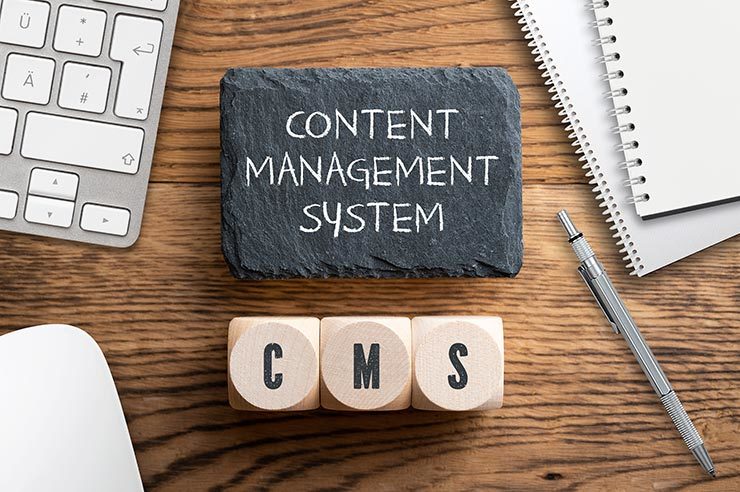Selecting the Most Appropriate CMS for Your Business
You’re planning a new website for your Jacksonville business, you agree with Hubspot that every business needs a blog, and you’re planning to have a blog on your website. Good for you. Next question: what blogging engine or platform will be the best choice for you?
WordPress
WordPress is the most popular blogging platform right now, with millions of users worldwide. It’s easy to use, flexible, and supports a huge community of developers. New updates allow you to work on your site from the front rather than in the admin section, clicking “edit page” or “add new post” from your website whenever you’re logged in.WordPress gives you lots of flexibility in terms of design, and there are many plug-ins and widgets that give you certain functionality that would be costly to build each time someone wanted to use it.
However, WordPress does require frequent updates for new versions of WordPress and of its plugins and widgets. It’s easy to tangle up your WordPress site with categories, tags, pages, and menus, and it’s easy to break a WordPress site accidentally. If you’re your own webmaster, you’ll quickly find that WordPress isn’t always as easy to handle as people claim.
Joomla
Joomla, like WordPress, is written in PHP and stores data in a MySQL database. It has a lot of developer support, and it has been around since 1995, so it’s a mature product. Joomla has thousands of free plug-ins and modules, and it tends to have better security and fewer bugs than WordPress. Perhaps because of this, Joomla tends to be the preferred platform for large sites that need a CMS. Joomla is second in popularity to WordPress — not always a primary factor, but it’s always easier to find support for a popular system.
Joomla isn’t as handy to work in as WordPress, from the point of view of the site owner, but it’s all that you’re used to. Once you get comfortable with Joomla, it’s not hard to use. It can be harder for someone without special skills to make Joomla pages look good, though. If you want to maintain a professional look at a Joomla site, you should plan to have some professional support on an ongoing basis.
Drupal
WordPress has about 55% of the global market share for blogging platforms/ content management systems. Joomla has about 10%. Drupal comes third with a little less than 7%. Drupal may be the most powerful of the three and is many developers’ first choice for large corporate sites. A skilled Drupal developer can do just about anything with Drupal.
The catch is — you need a skilled Drupal developer. Forget DIY if you plan to use Drupal. Your average web design company can’t handle Drupal, there are few choices for pre-made templates, and you won’t be able to customize your site on your own unless you’re prepared to do a lot of studying. This also means that you won’t be getting into the innards of the blog and breaking things, so it’s not all bad news. If you want to tend to business and let the experts take care of your website, Drupal is a fine choice.
The Rest of the Pack
We’ve only accounted for 72% of the CMS market: what’s the rest of the world using? Specialized systems like DotNetNuke or BlogEngine.NET account for another section of the market, while others use lesser-known systems like MangoBlog (that’s what we use here) or proprietary systems built just for their sites.
There are also some new players on the field. Concrete5 and Simple CMS are a couple of new solutions we’ve been admiring lately. With all three of the big players, you see a trade-off between flexibility and site owner control — that is, the more your developer can do for you to make the site exactly what you want, the less you can do on your own without a steep learning curve. Concrete5 and Simple CMS claim to overcome that tension by offering both ease and power. We’ll be watching them.
Right now, you should call Oyova to discuss the best platform for your particular needs. Since we’re developers, not just designers, we can use the platform that’s best for you — not just the one we happen to know.
Related posts:
Our Awards













